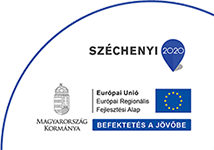It should become apparent in reading this work that the use of silver as a medium for artwork among metalworkers in the barbaricum regions of Europe during the La Tène period was not confined to eastern Europe, where its importance has been widely recognized. Silver was an important medium for La Tène artwork in western Europe as well. During the Middle La Tène period Celtiberian artisans excelled in the production of decorated silver items. During the Late La Tène period decorated silver items were made in Gaul as well. Thus, a tangible outcome of this research is the establishment of the Gaulish origins of the Gundestrup cauldron, the Sark-type phalerae, the Hildesheim and Neerharen vases, and the cups from Lyon, Thorey, and Alesia. All of these items were made of silver, and all date
to the first century BC. Also Gaulish and of the same first-century-BC metalworking schools were the Marlborough vat, the Aylesford bucket, the Rynkeby cauldron, all of which either were made of or were decorated with bronze.
This work establishes also that the decorative motifs on most examples of European metalwork created during the first century BC, from both the East and the West, apart from those made in Greece and Italy, were driven by the numismatic art of each region’s respective coinage. During the first century BC in the barbaricum regions of Europe there was an overlap in the repertory between the art in the small on the coins and the art in the large on the metalwork. This overlap validates the utility of using the coinage to determine a fuller view of the first-century-BC artistic lexicon. Because there are hundreds of type examples of the various tribal issues of coins, the basic
repertory of the first-century-BC art style can be seen to have been preserved through this numismatic medium. Thus the coinage provides a much more complete inventory of the first-century-BC artistic motif repertory than that presented by the few surviving items of large-scale metalwork. Indeed in many cases the coinage provides an actual stage-by-stage outline of the evolutionary development of the motif repertory.
A kötet adatai:
Nyelv: angol
Kötés: keménytábla
Megjelenés éve: 2001
Terjedelem: 340 oldal
Tartalomjegyzék:
Introduction
The Artisans and the Evolutionary Trends behind Late Celtic Art and the Use of Silver as Medium
The Problem of the Significance of the Terms Celtic and La Tene, particularly in Eastern Europe
The Methodological Postulates behind the Stylistic and Evolutionary Analysis of Late Celtic Art
Rationale behind a Critique of Previous Research on the Origins of the Gundestrup Cauldron
The Adriatic Style and Eastern Silver Work: 600-300 BC
Early Celtic Silver Work and the Use of Fantastic Animals in Early La Tene Art
Silver as a Medium for Coinage and Metalwork
Dates and Attributions of Gaulish Coins
First-Century-BC Gaulish silver Masks, Cups, and Vases
Similarities between the Gundestrup Cauldron, the Lyon Cup, and the Hildesheim Vase
The First Century BD Western Silver Phalerae and the Silver Torque from Trichtingen
A Stylistic Analysis of the western Phalerae
The Gundestrup Cauldron
The Bouray God, Gaulish Flat Metalwork in Bronze, and „Calendar Vases”
The Sophienborg Fragments, the Rynkeby Couldron, and the Marlborough and Aylesford Vats
The Sark Dolphin Mount, the Borremose Fortified Site, and the Origins of the Gundestrup Cauldron
The Orange Arch and the Gundestrup Cauldron
The Tendril Work and Geometric Decoration on Late Gaulish Flat Metalwork
High-Relief Heads on Late Celto-Gaulish Flat Metalwork
Profile Heads on First-Century-BC Gaulish Coins and Flat Metalwork
Standing and Riding Men
The Cross-Legged God of Plate A
The Seated Female of Plate f
Counter-facing Animals
Horned serpents
Doplhins and Fish
Birds
Griffins
Lions
Dogs and Wolves
Boars
Bulls
Elephant Bigas and Quadrigas
Asian and African Elephants
Stags
Horses, Pegasi, and Seahorses
Typological Trends in Late Gaulish Art
Concluding Remarks on the Chronological Development of Late Celtic Art
Appendix
A Critique of the North-Germanic School of Origin of the Gundestrup Cauldron
A Critique of the Istro-Pontic, Lower-Danubian, or Eastern School of Origin of the Gundestrup Cauldron
Bibliograhpy
Catalogue of Plates (Acknowledgements)
Plates


